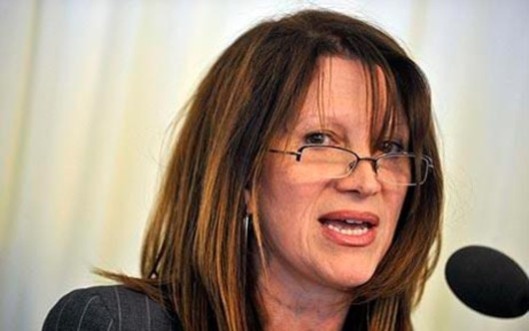
Lynne Featherstone: Her speech may have been
well-intentioned, but was also patronising and hypocritical in the light of the
Coalition’s treatment of disabled people in the UK.
According to a government press release, Liberal Democrat International Development Minister Lynne Featherstone used the High Level Meeting on Development and Disability at the United Nations in New York – the biggest disability rights meeting in five years – to call on the international community to tackle the ‘great neglect’ of a billion people globally who face unequal access to education, employment, healthcare, social support and justice as a result of disability.
Did her speech make any mention of the ‘great neglect’ of people in her own country who face discrimination on exactly the same grounds, caused by her government?
“Those living with a disability are disproportionately some of the poorest and most marginalised people in the world – part of an unseen great neglect,” she told the meeting. “It is telling that of the 57 million children currently out of school in the world today, over a third have a disability.
“As a global community, we have a duty to safeguard the most vulnerable. If developing countries are to move forward into prosperity and greater self-reliance, they must take everyone on the journey.
“That’s why from this day forward, all schools built with the direct support of British taxpayers will be designed to allow disability access.
“With the ongoing discussion of what development should focus on when the Millennium Development Goals expire in 2015, we have a once-in-a-generation chance to finally put disability on the agenda.”
Leaders of developing countries would have been justified in looking askance at the British minister while she was making this speech, with her hypocrisy on display for everybody to see.
They would be right to ask themselves: “Is this not a minister from a country that demonises its disabled people? That treats them as a burden on the community? That is trying to purge its society of them?
“Did her government not drive 73 disabled people per week to suicide or death through the exacerbation of their health problems – both brought on by cuts to state benefits and the threat of destitution - during 2011? And is her government not now refusing to provide up-to-date figures on the deaths its policies have caused?
“Does this not mean that deaths of disabled people caused – directly or indirectly – by UK government policies have increased dramatically during this time period, and the same government is trying to cover up the fact?”
It is notable that the government’s announcement landed on the same day that disability activist Samuel Miller received the following correspondence from the office of the UN’s special rapporteur on extreme poverty and human rights:
“On behalf of the Special Rapporteur, thank you very much for your communications… Ms Sepulveda is observing very closely the situation with the UK welfare policies and their effects on persons living in poverty, including persons with disability.
“She is doing her best within the limits of her mandate to address such situations not only in the UK but globally through direct engagement with Governments.
“She would like to commend you for your tireless efforts and wishes you all the best in your endeavours.”
In the light of all this, would leaders of developing countries not be right, while thanking the UK government for its well-intentioned offer, to ask why Ms Featherstone feels justified in talking down to them about the disabled when her government refuses to allow those in its own country an opportunity to live with dignity.